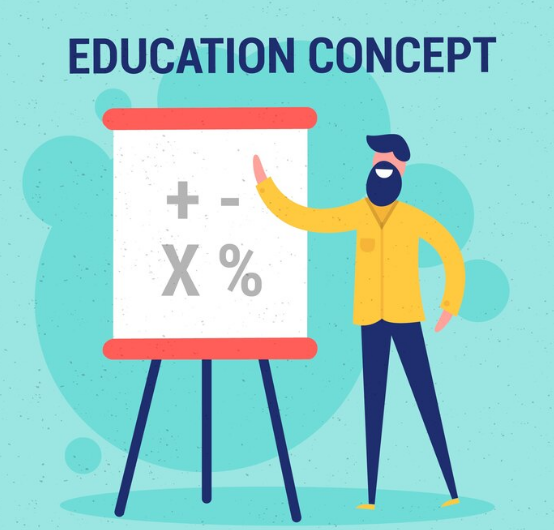Education is a pivotal foundation for every individual’s growth and success. In India, one of the most debated topics among students and parents is the choice of the academic board. The decision between Central Board of Secondary Education (CBSE) and State Boards can influence not only the learning experience but also the future academic and career opportunities of a student. The two systems differ in curriculum, pedagogy, assessment patterns, and overall educational approach.
Understanding the nuances between CBSE vs State Board can help students and parents make an informed choice that aligns with long-term goals. This article provides a thorough comparison between the two systems, assessing the strengths and challenges associated with each. By analyzing key factors such as curriculum structure, examination methodology, subject flexibility, and recognition, this guide will support your journey toward the right academic path.
Understanding CBSE: Structure and Approach
CBSE is a national-level board governed by the Union Government of India. It follows a uniform syllabus across all affiliated schools in India and even abroad. One of the defining features of CBSE is its focus on a scientific and conceptual approach to learning. The curriculum is designed in a way that prioritizes clarity of concepts, particularly in subjects like Mathematics and Science.
The board follows the NCERT (National Council of Educational Research and Training) syllabus, which is known for being concise and structured. The content is geared towards preparing students for national-level competitive examinations such as JEE (Joint Entrance Examination) and NEET (National Eligibility cum Entrance Test). Therefore, students aiming for these exams often prefer CBSE as it aligns closely with their syllabus.
CBSE also emphasizes internal assessments and project-based learning. Students are evaluated not just through written exams but also through various activities and periodic tests that assess their overall development.
State Boards: Regional Relevance and Flexibility
Each Indian state has its own education board, commonly referred to as the State Board. These boards are administered by the respective state governments and reflect local needs and cultural aspects in their curriculum. A major advantage of State Boards is their regional orientation, including the use of the local language as a medium of instruction alongside English or Hindi.
State Boards often have more flexible curricula, which might be perceived as less challenging than CBSE’s syllabus. However, this flexibility allows for the inclusion of region-specific topics, helping students relate better to their immediate environment. Additionally, the evaluation methods may vary from state to state, with some placing greater emphasis on theoretical learning rather than conceptual understanding.
Despite these differences, State Boards prepare students adequately for state-level entrance examinations and higher education within the respective states.
Curriculum Comparison
One of the primary factors in selecting an education board is the nature of the curriculum. CBSE focuses on a standard and compact syllabus that is conceptually driven. Its curriculum is nationally relevant and designed to be student-friendly with an emphasis on application-based learning.
In contrast, State Boards’ syllabi are more diverse and may differ significantly across states. They include local content and often emphasize rote learning methods. This can be beneficial for students aiming to pursue their further education within the state system.
While CBSE’s syllabus supports national-level exams, State Boards are better suited for regional educational pursuits. Both systems, however, are recognized and accepted across India.
Assessment and Evaluation Patterns
Evaluation methods significantly influence how students learn and perform. CBSE follows a continuous and comprehensive evaluation pattern. Students are tested periodically through formative and summative assessments. The goal is to reduce stress and promote holistic development.
State Boards generally follow a more traditional approach to assessment. Final exams carry significant weight, and there may be fewer internal assessments compared to CBSE. The focus is often on memorization and theoretical knowledge.
Students who prefer regular testing and activity-based learning may find CBSE more engaging. Meanwhile, those who excel in final exams may perform better under State Board evaluation systems.
Read more:- Best Fashion Designing Colleges in India
Subject Options and Flexibility
CBSE offers a variety of subject choices, especially in higher secondary classes. Students can select streams like Science, Commerce, and Humanities with options within these streams. The board encourages students to explore interdisciplinary subjects.
State Boards also offer similar streams, but subject combinations may be more rigid. Additionally, vocational subjects and region-specific electives are often available, which can be beneficial for students interested in pursuing careers related to their state’s industries or sectors.
Language of Instruction
CBSE generally uses English and Hindi as mediums of instruction. State Boards, however, cater to regional linguistic needs. They offer instruction in the state’s official language, which can be advantageous for students more comfortable in their native tongue.
This aspect plays a crucial role, especially in early education, where understanding in the mother tongue can facilitate better learning outcomes.
Recognition and Mobility
CBSE has a nationwide presence, and its certificate is widely accepted across Indian universities and institutions. It is also recognized by international bodies, which is advantageous for students planning to pursue higher studies abroad.
State Board certificates are recognized within India and are equally valid for higher education. However, students moving between states may face challenges in transitioning due to differences in curriculum and language.
Cost and Accessibility
Generally, CBSE-affiliated schools tend to have higher tuition fees, especially private institutions. On the other hand, State Board schools, particularly government-run institutions, are more affordable and accessible, especially in rural areas.
This factor can influence the decision for families based on financial constraints or location.
Career Implications
The choice between CBSE and State Boards can influence career paths. CBSE’s focus on national exams makes it ideal for students targeting all-India competitive exams. The board’s curriculum is often aligned with the requirements of such tests.
State Boards, with their regional focus, prepare students for state-level entrance exams and may include localized career opportunities. Both systems offer valid pathways, and success depends more on individual effort and guidance rather than the board itself.
The Final Word: Which One is Better?
Choosing between the two boards should depend on the student’s academic goals, learning preferences, language comfort, and career ambitions. It is crucial to assess whether a standardized national curriculum or a regional, flexible approach better aligns with these factors.
For families frequently relocating across states or planning education abroad, CBSE may provide more consistency. For those rooted in their state and planning for local opportunities, State Boards offer a valuable and relevant education.
Ultimately, the CBSE vs State Board decision should be guided by careful consideration of personal circumstances rather than perceived superiority of one over the other.
Read more:- BCA Course Details
Conclusion
Both CBSE and State Boards offer unique advantages, and neither is inherently better. The ideal choice is one that aligns with the student’s aspirations, abilities, and context. Education is not just about the board; it is about how students engage with learning, the support they receive, and the opportunities they seek.






Comments
0 comments